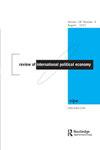人权还原:人权在世贸组织的回归
IF 3.7
1区 经济学
Q1 ECONOMICS
引用次数: 0
摘要
人们普遍认为,人权问题早已不在世界贸易组织(WTO)的谈判议程上。20世纪90年代末和21世纪初,北方国家试图在世贸组织规则中加入“社会条款”的尝试失败,经常被认为阻碍了在多边贸易谈判中纳入人权问题。本文对这一传统观点提出了挑战,表明各国正在世贸组织动员人权来塑造当前的全球贸易规则制定。此外,与普遍认为发达国家是贸易体制中人权的主要捍卫者,而发展中国家是其反对者的假设形成鲜明对比的是,我表明,发展中国家实际上已成为世贸组织中协调人权的关键角色。为了说明这些说法,我研究了发展中国家如何在最近世贸组织谈判中最具争议的两个问题上调动人权规范、原则和话语,影响全球贸易规则制定:为粮食安全目的使用公共粮食储备和豁免与贸易有关的知识产权协议,以确保获得COVID-19疫苗。本文章由计算机程序翻译,如有差异,请以英文原文为准。
Rights redux: the return of human rights at the WTO
The conventional wisdom is that human rights have long been off the negotiating agenda at the World Trade Organization (WTO). The failed attempt by Northern states to include a ‘social clause’ in WTO rules during the late 1990s and early 2000s is often cited as having foreclosed bringing human rights to bear in multilateral trade negotiations. This article challenges this traditional view, demonstrating that states are mobilizing human rights at the WTO to shape current global trade rulemaking. Moreover, in sharp contrast to the prevailing assumption that developed countries are the primary champions of human rights in the trade regime and developing countries the opponents, I show that developing countries have in fact become key protagonists in marshalling human rights at the WTO. To illustrate these claims, I examine how developing countries mobilize human rights norms, principles and discourse to shape global trade rulemaking in two of the most contentious issues in recent WTO negotiations: The use of public food stockholding for food security purposes and a TRIPS waiver to ensure access to COVID-19 vaccines.
求助全文
通过发布文献求助,成功后即可免费获取论文全文。
去求助
来源期刊
CiteScore
9.20
自引率
9.30%
发文量
47
期刊介绍:
The Review of Political Economy is a peer-reviewed journal welcoming constructive and critical contributions in all areas of political economy, including the Austrian, Behavioral Economics, Feminist Economics, Institutionalist, Marxian, Post Keynesian, and Sraffian traditions. The Review publishes both theoretical and empirical research, and is also open to submissions in methodology, economic history and the history of economic thought that cast light on issues of contemporary relevance in political economy. Comments on articles published in the Review are encouraged.

 求助内容:
求助内容: 应助结果提醒方式:
应助结果提醒方式:


